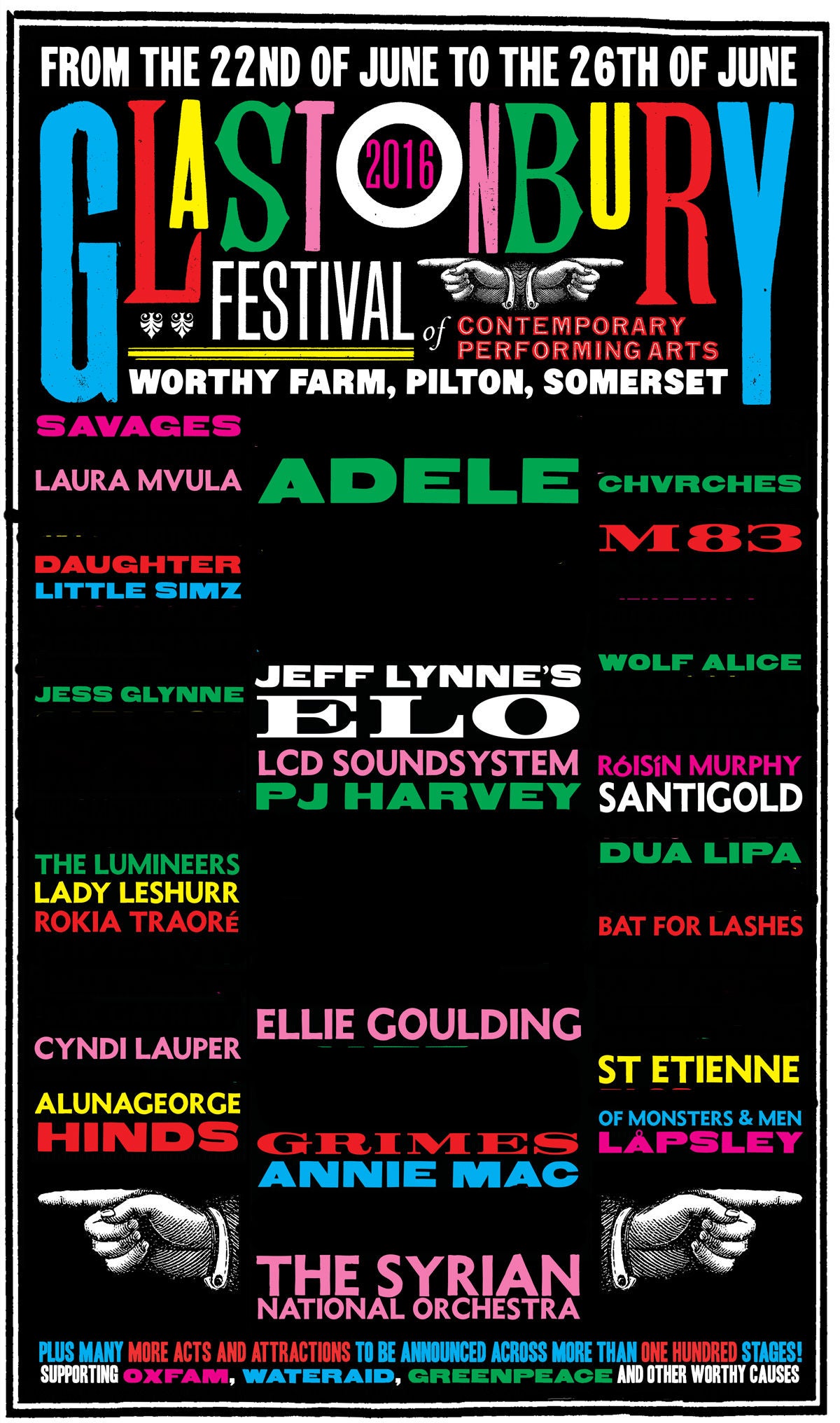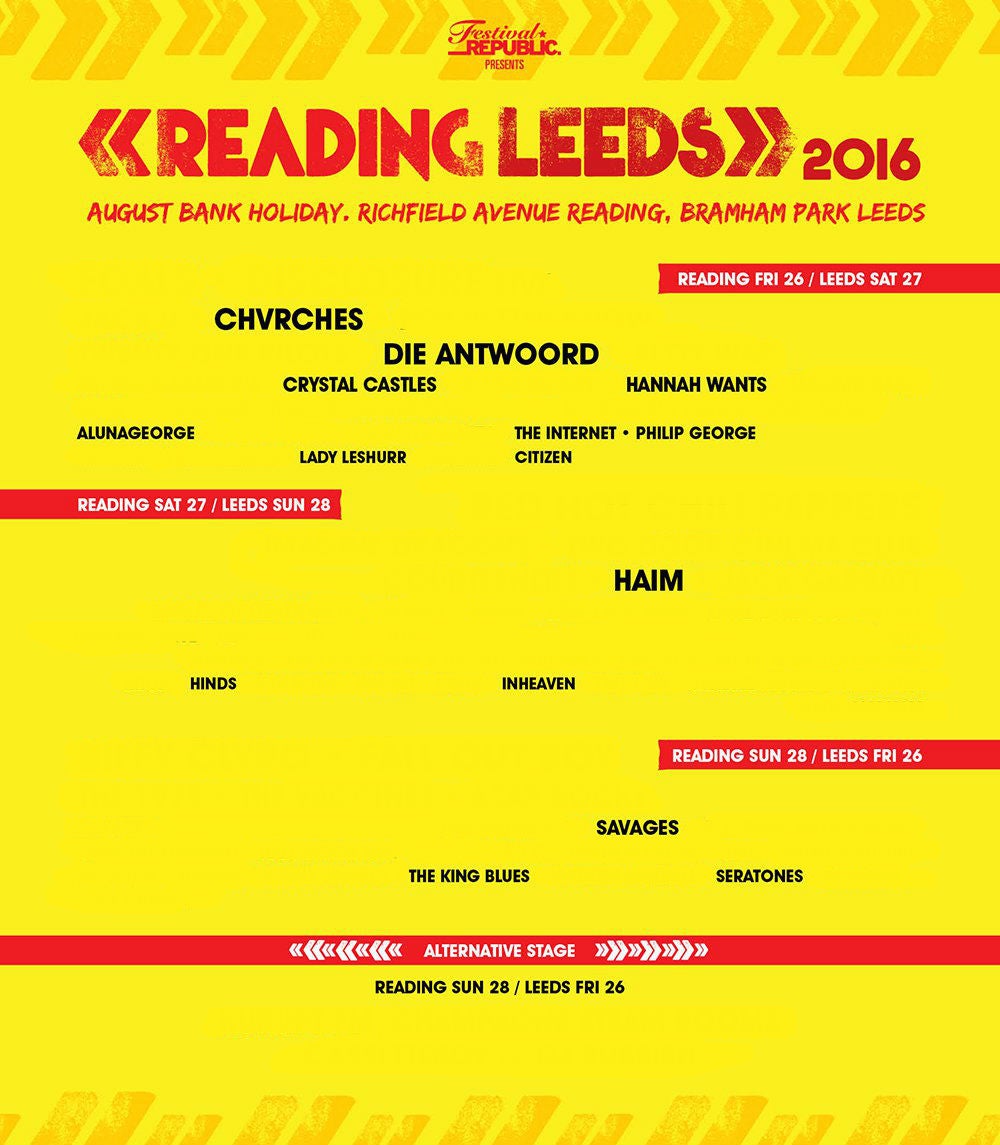Glastonbury 2016: Emily Eavis promised a line-up 'strong on women' - but has she delivered?
The outlook for female musicians might be slowly improving across the festival circuit, but the 'pale, male and stale' guitar hero vision still looms large

Your support helps us to tell the story
From reproductive rights to climate change to Big Tech, The Independent is on the ground when the story is developing. Whether it's investigating the financials of Elon Musk's pro-Trump PAC or producing our latest documentary, 'The A Word', which shines a light on the American women fighting for reproductive rights, we know how important it is to parse out the facts from the messaging.
At such a critical moment in US history, we need reporters on the ground. Your donation allows us to keep sending journalists to speak to both sides of the story.
The Independent is trusted by Americans across the entire political spectrum. And unlike many other quality news outlets, we choose not to lock Americans out of our reporting and analysis with paywalls. We believe quality journalism should be available to everyone, paid for by those who can afford it.
Your support makes all the difference.It is no secret that the fields of Worthy Farm have long been trodden by the mud-caked wellies of primarily male performers. So when organiser Emily Eavis hinted at a Glastonbury line-up “strong on women”, eyebrows everywhere raised; half in world-weary scepticism and half in tentative hope.
Months of rumours followed before the first headliner, Coldplay, was thrown into the waiting pit of snarling, “Could Glasto get more boring?” festivalgoers. Next up were Muse, who narrowly survived a mauling thanks to their epic stage antics, leaving one slot ominously empty. Finally, “the wonderful Adele” was revealed to be making her Somerset debut, and immediately began swearing at all those letting out a collective groan at what they saw as the final, inevitable demise of Glastonbury’s hippy credentials.
There is nothing wrong with expressing disappointment at Adele headlining; her radio-friendly music is not for everyone and she knows it. But seeing a talented woman’s name on the Glastonbury poster in its biggest font is progress, which should surely be encouraged regardless of musical taste.
Last year’s Glastonbury saw flame-haired Florence Welch spectacularly prove herself a worthy replacement for last minute drop-out Foo Fighters, but few stopped to realise that she was the first British woman this century to headline. Fleetwood Mac was the only other headliner at the six major festivals to feature women and the visibility of female artists across the entire festival circuit was dire, those viral edited line-up posters with the all-male acts removed baring the shameful truth about how far we still had to go in 2015.
Studies by the Guardian’s data team revealed that 86 per cent of advertised performers on the line-ups of 12 leading UK festivals were male, with 2,336 men performing compared to just 270 women. In 2014, 3.5 per cent of all acts performing across the UK’s six biggest festivals were all-female bands, compared to 43 per cent all-male bands.
Festival organisers have been asked about the historic sidelining of women numerous times before, their responses invariably blaming a lack of opportunities for female musicians in the wider, male-dominated industry. That may be true to some extent, but many artists rely on the festival circuit to help kick-start their careers, and suggestions that line-ups are curated purely on quality quickly turn offensive when so few female performers are included. The pickings are simply not that slim anymore.
Come 2016, things are looking mildly more hopeful. Eavis has delivered on her promise to some extent - there are certainly some talented female acts on the latest line-up - but it’s hardly time to whip out the party poppers and declare the downfall of the patriarchy just yet. Of the top-billing acts, only PJ Harvey, Grimes, Ellie Goulding and Annie Mac join Adele, which is no better than last year when Florence + the Machine, Mary J Blige, Paloma Faith, Courtney Barnett and Patti Smith led the Pyramid Stage charge.
Elsewhere across the weekend, music lovers will be treated to sets by Laura Mvula, Jess Glynne, Cyndi Lauper, Lady Leshurr, Roisin Murphy, Santigold, Dua Lipa, Rokia Traore, Little Simz, Bat For Lashes, Lapsley and St Etienne, among several female-fronted bands such as Chvrches, Savages, Wolf Alice and Of Monsters and Men. These performers might be up there with the best, but so long as they are outnumbered by the men, Glastonbury cannot claim equality.

In fairness, Glastonbury has a much better outlook than Reading and Leeds, which despite being the main culprit in sexist-poster-gate, has failed to book a single female headliner for 2016, instead throwing in a mere handful of women - notably Haim, Chrvches and Savages - who, shock horror, can play instruments too.

Rihanna headlines V and Sister Bliss closes the Isle of Wight with Faithless, but it seems the prominent vision of a festival headliner is somehow, still, a ‘pale, male and stale’ guitar hero.
Join our commenting forum
Join thought-provoking conversations, follow other Independent readers and see their replies
Comments